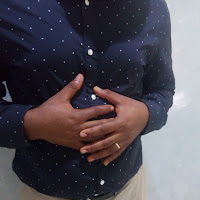WHAT TO KNOW ABOUT PEPTIC ULCER
Peptic ulcer is a wound or break that occurs on the inside lining of the passage way from the throat to the upper part to the small intestine. Normally a thick layer of mucus lines and protects the food tract, if this mucus is reduced or removed the gastric juices, hydrochloric acid and the enzyme pepsin begin to harm the area, causing wound.
The main areas where it occurs are the esophagus (swallowing tube), the stomach and the upper part of the small intestine.
CAUSES
The two most common causes are:
- Infection with bacteria called helicobacter pylori
- Drugs – anti – inflammatory – pain killer e.g. ibuprofen, aspirin etc. and chronic steroid abuse that predisposes to the disease
RISK FACTORS
There are factors that do not cause ulcer but can increase the chances of developing it.
- Age: 60 years and above due to use of strong pain killers in arthritis and reflux of excess bile into the stomach, as the valve between the stomach and upper small intestine relax in old age.
- Family history of the disease.
- Smoking.
- Heavy alcohol intake.
- Fatty and spice food.
- Gender-more in women than men.
- Tumor of the acid producing cells of the stomach that increase acid output.
SIGNS AND SYMPTOMS
There may or may not be symptoms, but when symptoms occur, they include:
- Burning pain in the naval: breastbone or at the back.
- Heart burn
- Fullness of abdomen (bloating)
- Nausea and vomiting.
IN SEVERE CASES:
- Dark or black stool due to bleeding
- Weight loss.
- Vomiting of blood.
TREATMENT
Peptic ulcer is no longer a life-long disease (chronic) as was thought before, with adequate treatment, most of them are cured. Treatment involves:
- Change in health behavior
- Drugs- use of antibiotics and those that reduce or block acid secretion.
- Operation in severe cases of bleeding
Note: drinking milk does not cure ulcer, as it gives brief relief of pain but worsens it by stimulating the stomach to produce more acid.
SELF HELP
- Find out what brings about your symptoms (triggers) and stop it. Foods do not affect everyone the same way, e.g.-spiced, fatty etc.
- Avoid green and black tea, orange and grape fruits, onions, garlic etc.
- Stop smoking if you smoke.
- Stop alcohol if drink it.
- Eat food rich in vitamins e.g. – fruits, vegetables, whole grain that will help in healing.
- Eat small frequent meals at a time.
- Eat two hours before bed time.
- Use pain killers wisely, switch pain relievers that don’t contain caffeine.
- If you have symptoms, see your doctor.
COMPLICATIONS
If not well treated, it can lead to the following
- Bleeding.
- Perforation – a hole through the wall of the stomach.
- Obstruction of the gastric outlet due to swelling or scamming.
Literature Source: Health Education Unit, Clinical Services Department Federal Medical Centre Owerri.
